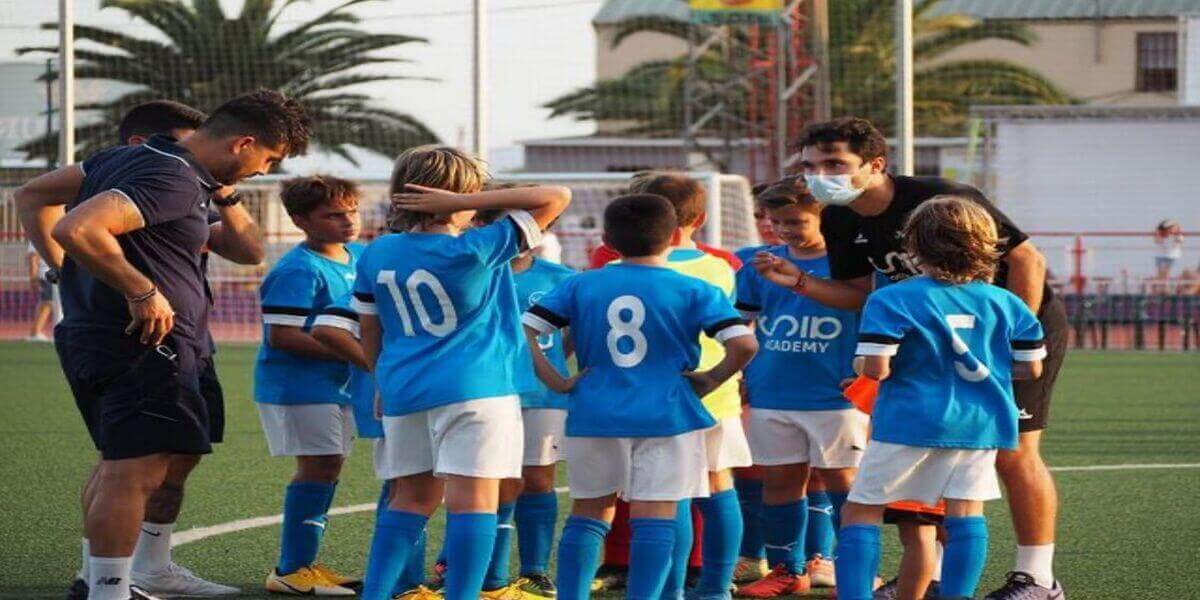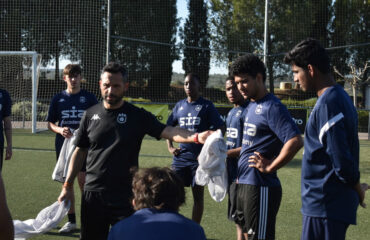Sport, acquisition of habits and values
Sport in general, and team sports in particular, are considered to have great potential for the development of healthy habits and the acquisition of values. Moreover, we should not forget the important physical and psychological benefits of sport. Thus, the importance of the coach’s role with regard to the quality of this sporting experience in young football players, as well as the orientation and pedagogical action given to it.
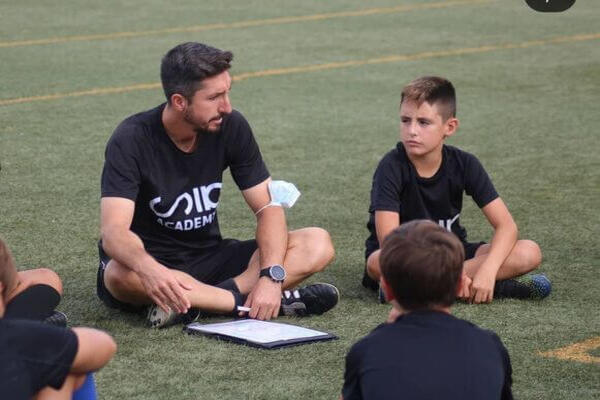
The application of sport at an early age has been, is and will be a controversial subject, which must be analysed due to its topics. It can be an educational resource, but it can generate undesired learning such as discriminatory behaviours, negative experiences…
Values in football
Physical-sport practice is a means of socialising influence that favours the formation of the personal characteristics of young people, possessing healthier behaviours, and the promotion and transmission of values such as honesty, respect, tolerance, solidarity, generosity, team work.
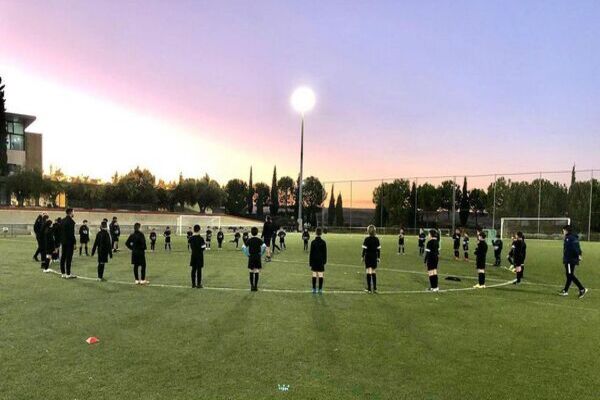
But what do we know as values? They are personal beliefs about the appropriateness of a series of behaviours that determine the behaviour of each individual.
Although we should not think that the simple practice of sport favours the development of the values that characterise sport, it is necessary to work intentionally on this aspect so that the acquisition of these values is adequate and in a positive way, thus allowing sport to really develop this potential.
Role of the coach
In the context that has been established in relation to football, giving it a great importance for the education in values due to the fact that it is considered a playful activity and generates opportunities for this purpose, thanks to the amount of changing circumstances that may exist.
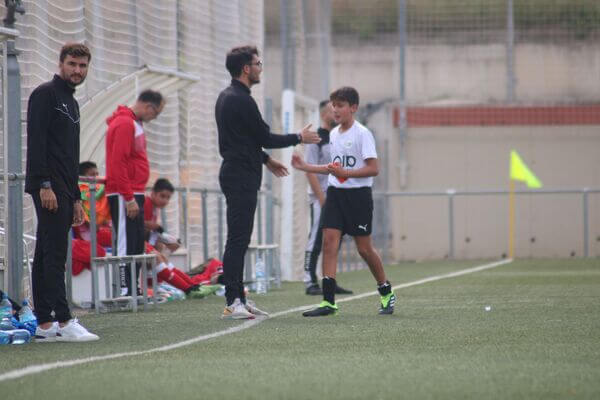
The type and quality of the values that young players acquire will depend on the sporting environment in which they develop, highlighting the figure of the coach for the development and training of young people as people and athletes.
The development of these values through sporting participation is not as simple as it seems, in fact, on many occasions, coaches do not behave as a true sports educator in many of the behaviours that they have.
For this, the importance in the process of the climate and the strategies established by the coach. The work of these professionals in grassroots football can only be established from an educational and playful performance, making it necessary to incorporate psycho-educational variables into their own training.
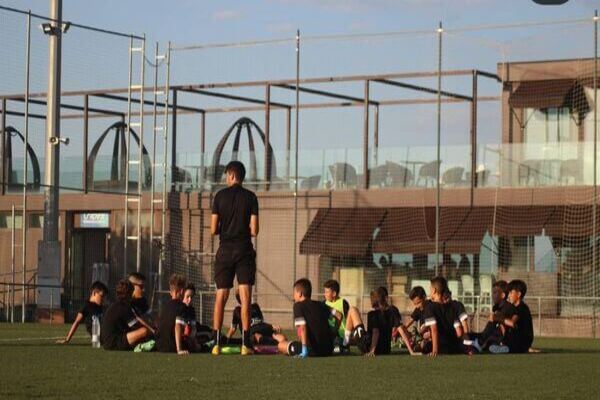
The quality of sport and of the teaching-learning process. Adequate training, establishment of objectives, pedagogical attitude, … are some of the elements that determine this quality, and whether the process is adequate or detrimental to the players.
Trainers must adjust the learning and acquisition objectives in relation to the maturational characteristics of the children.
However, the reality is quite different in many cases. The results-driven vortex of professional football has ended up reaching grassroots football, putting an end to the teaching-learning processes and to some coaches looking for their own benefit before that of the players. Results, immediacy, winning as the main objective, all these are elements that are present in the training stages, it is contradictory, yes, but real.
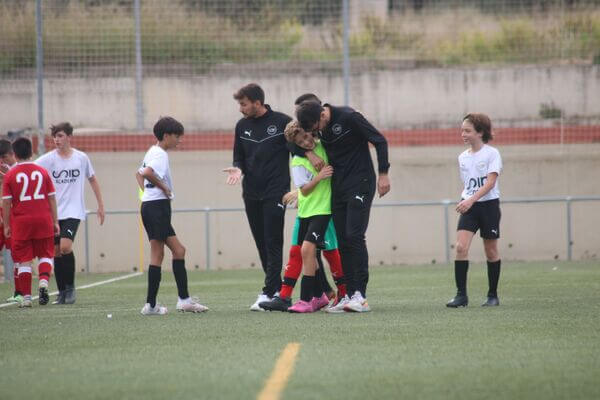
Competition as education
Competition is part of sport, however, its educational value and transmission of values has been questioned on many occasions, as well as in numerous scientific articles (Hidalgo, 2008).
By participating in any sport you accept its rules, and with it, its main consequences with winning or losing. But as in life, in general, you lose more than you win, especially when it comes to a context with as many variables as football.
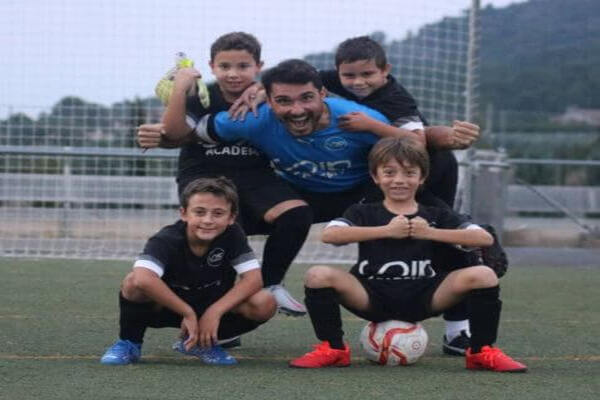
Learning to play
Human beings by nature are competitive, and the less mature they are, the more so. The question in training football is the means to win, how do you want to achieve it, through teaching and understanding the game or in any other way?
Therefore, in grassroots football you compete to learn to play, not to learn to win. Compete, play and win. You compete to learn to play and you learn to play in order to have more chances to win. That is the importance of the process and of not eliminating any element of it in order to favour the player’s learning.
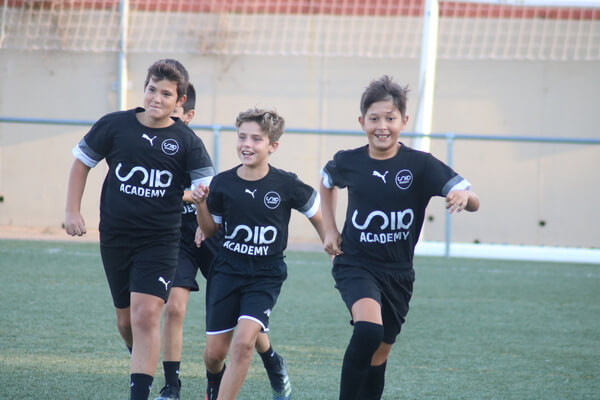
Knowing how to win and know how to lose
You have to learn to lose, it is as important or even more important to learn to win, to recognise the merit of the opponent, to make self-criticism, to analyse the contexts, in short, to self-improvement.
The words of Perico Delgado should be highlighted: “Second places are no longer worth anything, in this way, adults are transmitting to young athletes that if you don’t win you are not valid. And this is going to create a tremendous number of failures, we shouldn’t value victory so much, we shouldn’t focus on ability but on effort and value it. A society is being created in which only winning is worthwhile”.
Hay que resaltar las palabras de Perico Delgado: “Los segundos clasificados ya no valen para nada, de esta forma, los adultos están trasmitiendo a los jóvenes deportistas que si no ganas no eres válido. Y con ello, se va a crear una cantidad de fracasados tremenda, no hay que valorar tanto la victoria, no centrarse en la habilidad y sí en el esfuerzo y valorarlo. Se está creando una sociedad en la que solo vale ganar”.



